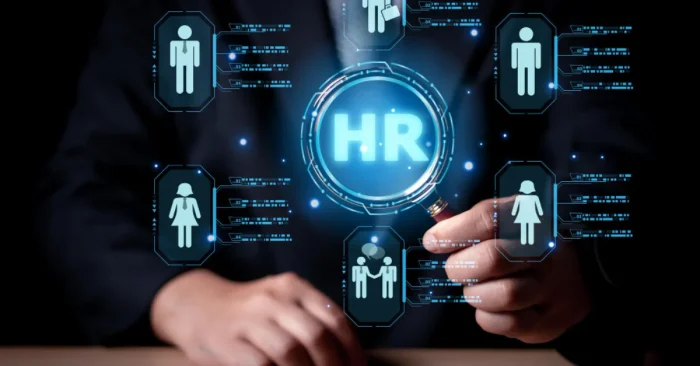Overview
AI tools for HR and recruitment are transforming how companies attract, hire, and retain talent. From automating repetitive tasks like resume screening to predicting employee performance, AI makes the recruitment process faster and smarter. These tools reduce human bias, save time, and improve candidate experiences. HR professionals can focus more on strategy, employee engagement, and long-term workforce planning. With AI-powered analytics, organizations can identify the right talent, improve retention rates, and ensure compliance with hiring practices. By integrating AI, HR teams enhance efficiency, boost decision-making, and build stronger connections with both candidates and employees.
1. AI for Resume Screening
AI resume screening tools analyze thousands of applications in minutes. They filter candidates by skills, education, and experience, reducing manual workload for HR teams. By prioritizing the most qualified applicants, HR professionals save time and ensure better hiring accuracy. This process minimizes human bias and improves diversity in recruitment.
2. AI-Powered Chatbots
Chatbots handle candidate queries, schedule interviews, and provide instant updates. This improves communication between recruiters and applicants. Candidates receive timely responses, enhancing their overall experience. Recruiters, on the other hand, spend less time on repetitive questions and more on evaluating talent. These chatbots also operate 24/7, increasing efficiency.
3. AI in Candidate Matching
AI-driven platforms match job descriptions with candidate profiles using natural language processing. They go beyond keywords to assess skills, cultural fit, and potential. This improves the accuracy of shortlisting and ensures that only the most suitable candidates move forward. Recruiters can quickly identify top talent and reduce mismatches.
4. AI for Predictive Hiring
Predictive analytics in AI assess candidate data to forecast performance and retention. By analyzing patterns from past hires, HR teams can predict which candidates are more likely to succeed long-term. This helps reduce turnover and ensures a better fit between employees and roles. Companies benefit from improved workforce stability.
5. AI for Interview Assistance
AI interview tools analyze candidates’ facial expressions, tone, and language during virtual interviews. They provide recruiters with deeper insights into behavior and communication skills. These tools help identify soft skills and personality traits that traditional interviews may overlook. This leads to more comprehensive evaluations and better hiring decisions.
6. AI in Employee Onboarding
AI streamlines onboarding by automating document verification, training schedules, and policy introductions. New hires receive personalized learning modules, ensuring faster adaptation to the company culture. This reduces the administrative burden on HR staff and provides employees with smoother entry into their roles, improving overall job satisfaction from the start.
7. AI for Diversity Hiring
AI helps reduce unconscious bias in recruitment by focusing on skills and qualifications instead of personal identifiers. These tools ensure fair shortlisting, promoting workplace diversity and inclusion. Companies that prioritize diversity hiring benefit from broader perspectives, stronger creativity, and better team performance, making AI a valuable ally in equity efforts.
8. AI in Performance Tracking
AI systems monitor employee performance using data on productivity, engagement, and skill development. HR managers can identify training needs, reward high performers, and address performance issues early. This proactive approach boosts employee growth and retention. By leveraging AI insights, companies build stronger and more motivated teams over time.
9. AI for Workforce Analytics
AI tools provide detailed insights into workforce trends, employee satisfaction, and retention risks. By analyzing survey data, communication patterns, and performance metrics, HR managers can make informed decisions. These analytics guide policy improvements, training initiatives, and organizational changes, ensuring that companies remain competitive and responsive to employee needs.
10. AI in Recruitment Marketing
AI enhances recruitment marketing by targeting job ads to the right audience. It analyzes candidate behavior and demographics to optimize campaigns. This ensures openings reach qualified talent while reducing advertising costs. Companies attract better applicants and strengthen their employer brand. AI-powered marketing increases visibility and accelerates the hiring process.
(FAQs)
1. Can AI completely replace HR professionals?
No. AI supports HR with automation and insights, but human judgment, empathy, and strategic planning remain essential for workforce management.
2. Are AI recruitment tools suitable for small businesses?
Yes. Many AI recruitment platforms offer affordable solutions that help small businesses streamline hiring without needing a large HR team.
3. How does AI improve candidate experience?
AI improves candidate experience by offering instant communication, fair assessments, and faster hiring processes, making job applications more engaging and efficient.
Learn More About AI Course https://buhave.com/courses/learn/ai/






